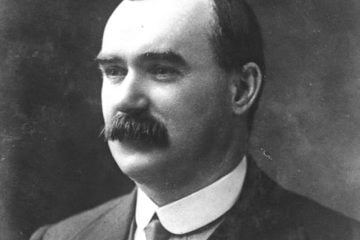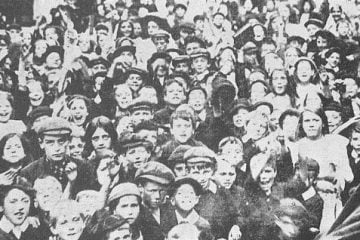Published in 1938, CLR James’ masterpiece of Marxist historiography essentially opened up the serious study, not just of the Haitian Revolution, which created the first black state outside of Africa, but of the role of slaves as a revolutionary historical force.
The Black Jacobins is universally heralded as a definitive work, and there are many reasons for this. Among the most important things that it did was to bring the attention of histories of slavery to the people most deserving of it: the slaves. Many an hour was squandered, and many a page wasted, before James’ book was published by dishonest ‘historians’ attempting to whitewash the appalling brutality of chattel slavery and to rid the blacks of any agency in the events which ultimately ended their enslavement.
Without sentimental regard for any traditional lionisation or ridicule of leaders of all shades, James states clearly and critically the position of each prominent individual in the struggle for freedom. Angrily mocking even the most radical Jacobin leaders in France for their inconsistency on the question of slavery, James’ book situates the heroism of the struggle not amongst the rich white European parliamentarians and philanthropists, but among the revolutionary masses in the slave colony of San Domingo and the Parisian masses that created the great French Revolution.
In a prose style characterised by both force (of argument as much as of emotion) and clarity, James charts the story of the Haitian revolution from the creation of the slave colony in San Domingo to the victories of the blacks under the remarkable leadership of Toussaint L’Ouverture and Jean-Jacques Dessalines. Inevitably, aspects of his analysis have been dated by subsequent research, but the thrust of his argument remains as exciting and valid today as it ever was.
Emerging among the many striking parts of the book is the real internationalism which unites and inspires revolutionaries across national boundaries and geographical divides. From America to France, across every European nation, and even to the slaves of the Caribbean, the revolutionary war cry of the age – Liberty, Equality, Fraternity – united innumerable apparently disparate people into a single struggle.
Despite all divisions, whether real (geographical, linguistic, cultural) or superficial (racial, national), revolutionary peoples find allies in anybody who shares their grievances and goals. The story of the Haitian Revolution is a story of unity emerging on the basis of class interest, above narrow interests of nation or ‘race’.
The greatest lesson, then, of James’ classic history is that in all historical struggles, and especially ones of a revolutionary character, it is the dynamics of class and property, not race or genealogy, which play the primary role in determining the course and outcome of events. As such, the book remains a must-read for all socialists, anti-racists and internationalists today.
by Eoin Breathnach (Leeds Marxist Society)
The Black Jacobins can be purchased online at www.wellredbooks.net




